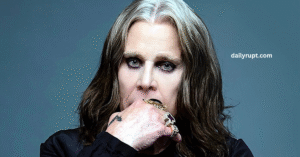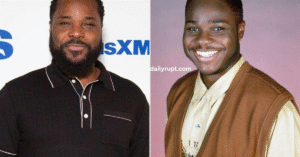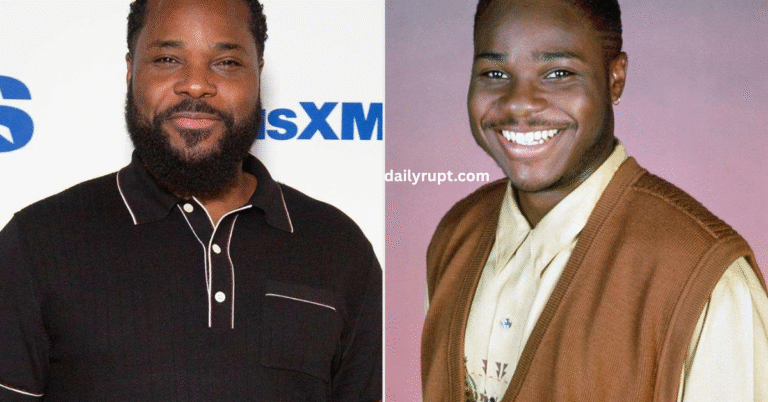The world of rock and metal has fallen silent with a heavy heart. Ozzy Osbourne, the legendary “Prince of Darkness” and one of the most influential figures in music history has died at the age of 76. With a career that spanned over five decades, Ozzy was more than just a frontman of Black Sabbath or a solo artist; he was a cultural phenomenon, an icon, and a survivor in every sense of the word.
The official news of his passing came early on July 22, 2025. Surrounded by his family at home, Ozzy passed peacefully. While the official cause of death has not yet been revealed, it’s widely understood that his battle with Parkinson’s disease and years of physical setbacks played a major role. Despite his health challenges, he defied expectations until the very end, delivering one final show just weeks before his death.
A Final Goodbye on His Terms
In what now feels like a scripted farewell, Ozzy Osbourne took to the stage one last time on May 5, 2025, in Birmingham the very place where his musical journey began. The concert, titled Back to the Beginning, was his emotional farewell and a once-in-a-lifetime reunion of the original Black Sabbath lineup. Fans from around the world flew in to witness history.
Sitting on a throne due to mobility limitations, Ozzy still managed to electrify the audience with his raw vocals and undying energy. The atmosphere was bittersweet. You could feel the love, the nostalgia, and the recognition that this truly was the end of an era. The concert was more than a performance; it was a celebration of a life that changed music forever.
From Aston to Icon
John Michael Osbourne was born on December 3, 1948, in Aston, Birmingham, England. The son of a toolmaker, Ozzy grew up in a working-class environment and struggled with dyslexia and depression. But everything changed when he teamed up with Tony Iommi, Geezer Butler, and Bill Ward to form Black Sabbath in 1968.
What followed was a revolution. With the release of their self-titled debut album in 1970 and the massively successful Overly Suspicious, the band laid the groundwork for what we now call heavy metal. Ozzy’s haunting vocals, coupled with Iommi’s bone-crushing riffs, created a sound the world had never heard before. Tracks like “Iron Man,” “War Pigs,” and “Paran*id” weren’t just songs; they were anthems of rebellion, war, and chaos.
Despite his success with Black Sabbath, Ozzy was fired from the band in 1979 due to substance abuse issues. He did the unthinkable rather than fade into obscurity: he launched a solo career that arguably eclipsed his Sabbath days. Albums like Blizzard of Ozz and Diary of a Madman turned him into a solo juggernaut. Songs such as “Cra*y Train” and “Mr. Crowley” became staples in the metal world and sealed his legacy.
Ozzy Osbourne’s official Instagram account
A Life of Chaos, Pain, and Unstoppable Resilience
Ozzy’s life was far from smooth. His battles with drug and alcohol addiction were well-documented, and so were his struggles. In 1989, he infamously tried to strangle his wife Sharon during a drug-induced blackout, an incident they both later talked about publicly with raw honesty.
Accidents followed him throughout his life. A near-fatal quad-bike crash in 2003 left him with multiple broken bones. A fall in 2019 required neck surgery and further complicated his mobility. And then came Parkinson’s disease, a diagnosis he revealed in 2020.
Even in his later years, Ozzy remained determined to return to the stage. Between spinal surgeries, stem-cell treatments, and rigorous physical therapy, he continued to plan tours, record music, and engage with fans. His resilience inspired millions, proving that even the Prince of Darkness had a heart of gold and the soul of a warrior.
More Than Just Music
While Ozzy Osbourne will forever be remembered for his music, his impact went far beyond the stage. In the early 2000s, he became a mainstream television star with The Osbournes, a reality show that gave the world a glimpse into the chaotic but loving family life of the rock legend. The show broke viewership records, won an Emmy Award, and introduced a new generation to Ozzy’s unique personality.
The Osbourne family, Sharon, Kelly, Jack, Aimee, Jessica, and Elliot Kingsley, became celebrities in their own right. Sharon, in particular, stood as Ozzy’s rock and manager throughout the rollercoaster of his career. Their love story, though turbulent, was one of enduring support, redemption, and forgiveness.
A Global Outpouring of Love
News of Ozzy Osbourne’s death sent shockwaves across the music world and beyond. Tributes poured in from fellow artists, fans, and public figures. Elton John, Gene Simmons, Zakk Wylde, Tony Iommi, and countless others honored Ozzy not only for his music but for his raw humanity and authenticity.
Fans gathered at makeshift memorials outside concert halls, homes, and record shops. On social media, hashtags like #RIPOzzy and #PrinceOfDarkness trended globally. Concerts across the world paused to play his music. Coldplay, during a live show in Nashville, performed “Changes” in his honor, a moment that brought many to tears.
Even those who didn’t grow up on Black Sabbath or Ozzy’s solo records recognized what he stood for: rebellion, honesty, survival, and creativity without compromise.
The Legacy Lives On
Ozzy Osbourne’s legacy is not just about the music he created; it’s about the movement he led. He pioneered heavy metal, inspired generations of musicians, and redefined what it meant to be a rock star. From biting the head off a bat (accidentally, as he later clarified) to becoming a family man on television, he lived multiple lives all unapologetically.
His discography spans over 30 albums, including solo and Sabbath projects. He won multiple Grammy Awards and was inducted into the Rock and Roll Hall of Fame both as a member of Black Sabbath and a solo artist. His net worth was estimated at over $220 million at the time of his passing, a testament to a career built not on trends, but on sheer charisma and unfiltered passion.
Final Reflections
The world has lost a true original. Ozzy Osbourne was chaos and calm, destruction and redemption, metal and melody all rolled into one unforgettable figure. He didn’t just make music; he embodied it.
Now, as the curtain closes on the man who gave us “Cra*y Train,” “Mama, I’m Coming Home,” and countless other classics,
We remember not just the performer, but the person.
In a world that often tries to polish its icons into perfection, Ozzy remained gloriously flawed and fiercely authentic. And maybe that’s why he mattered so much because he reminded us that it’s okay to fall, to struggle, and to keep getting up.
Rest in power, Ozzy. The world will never see another like you.











